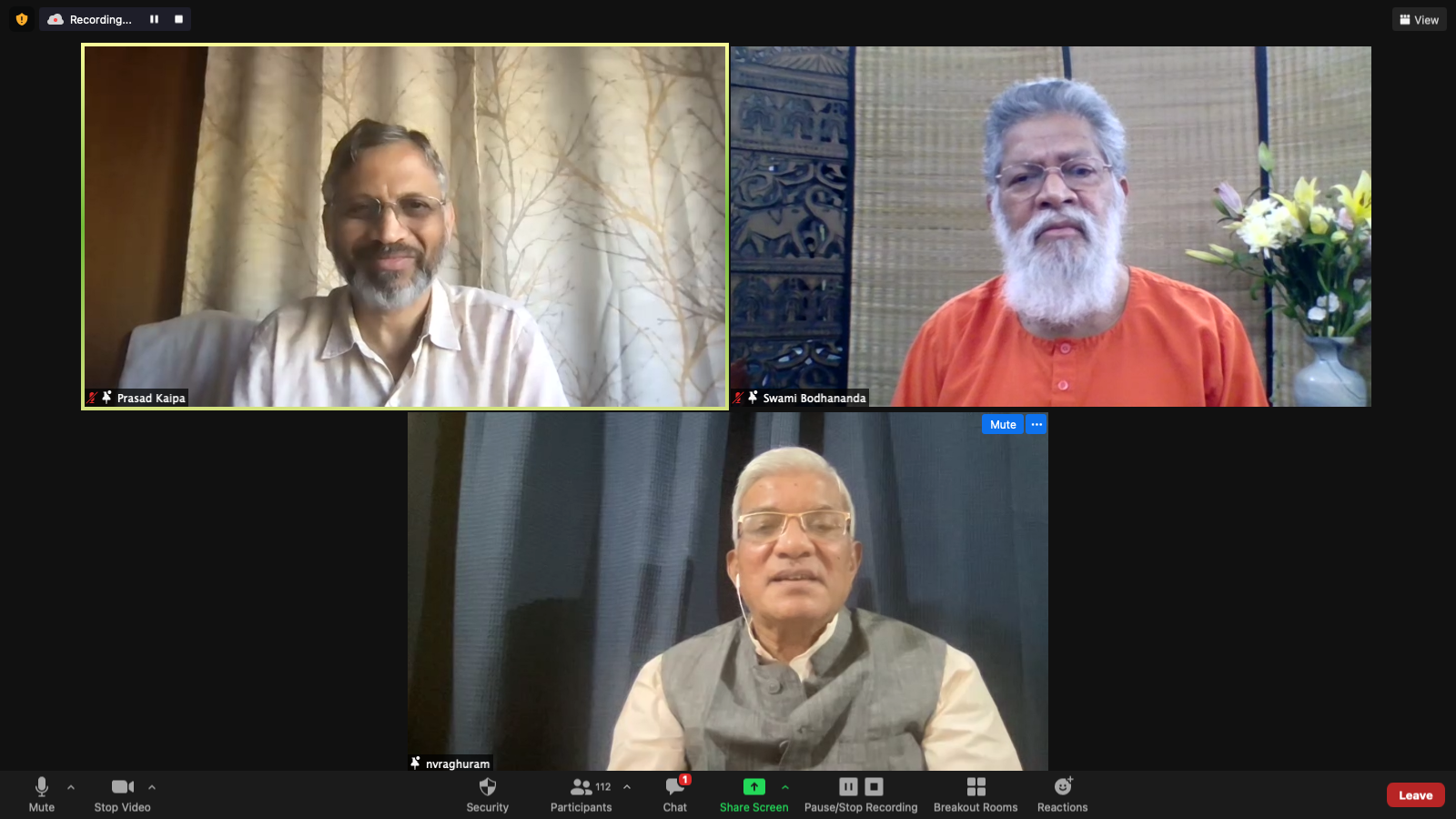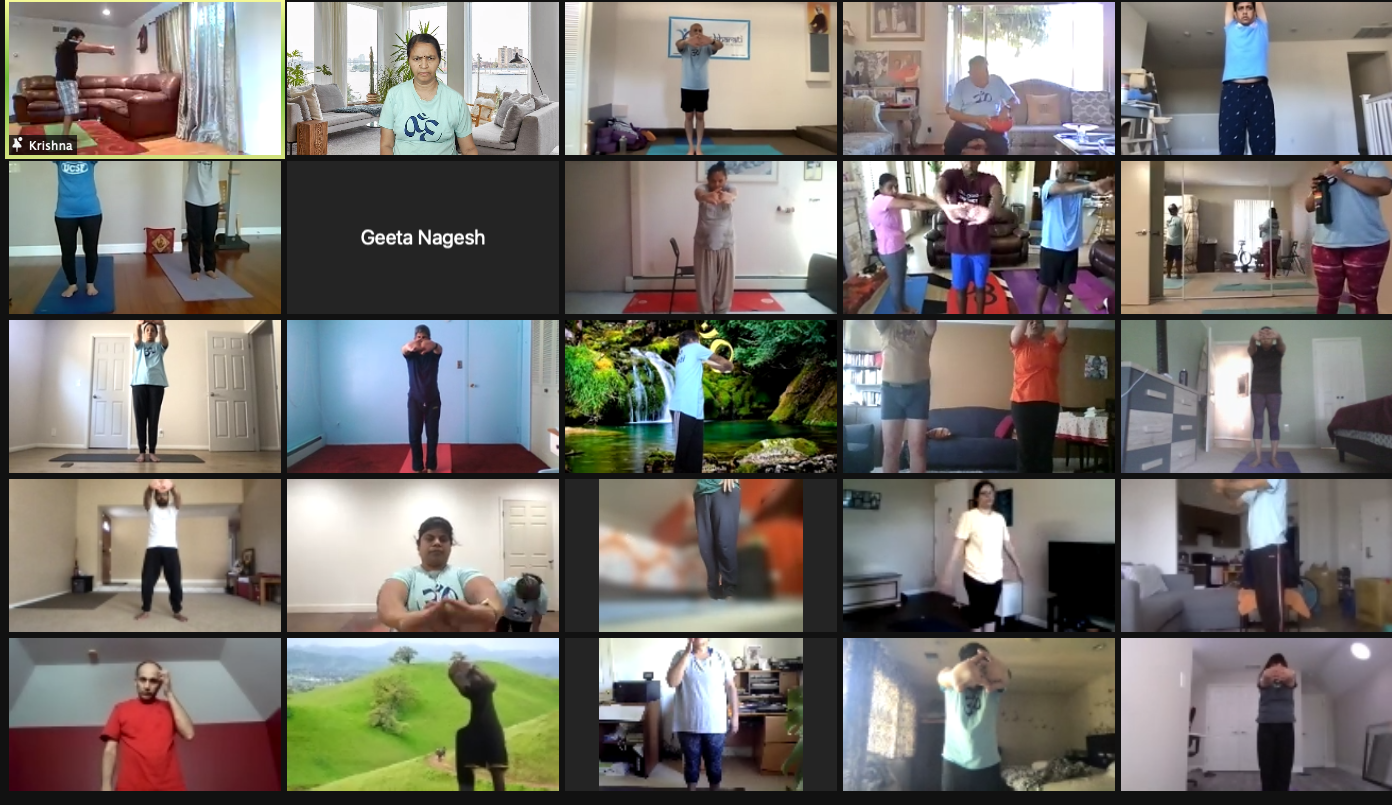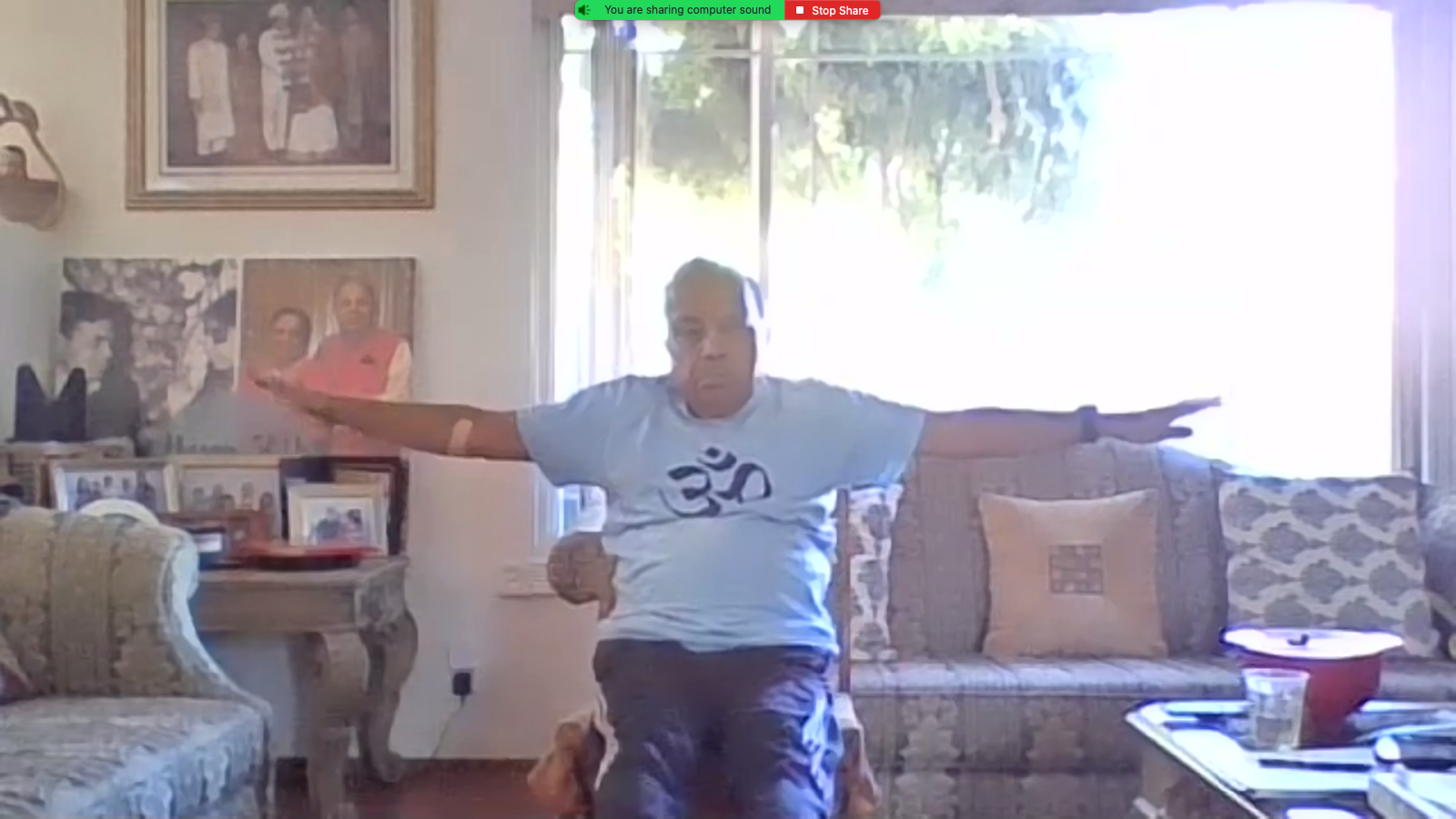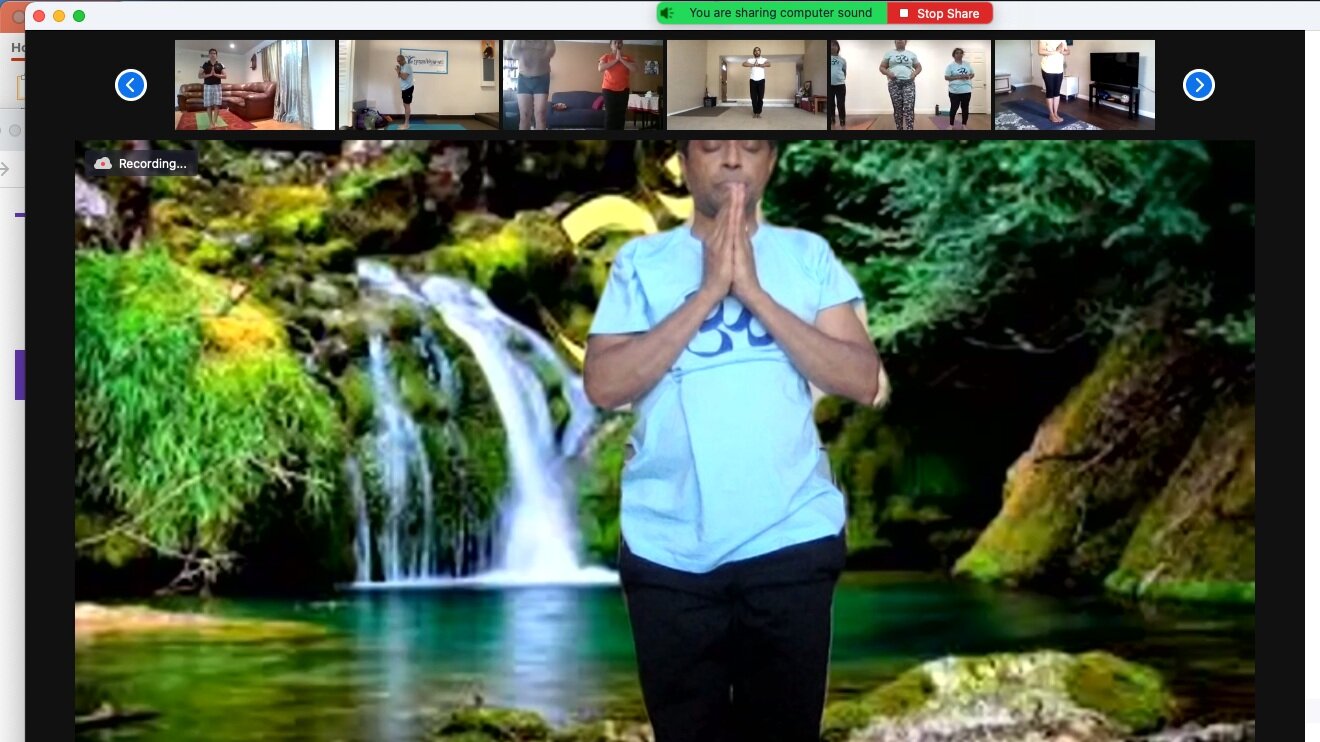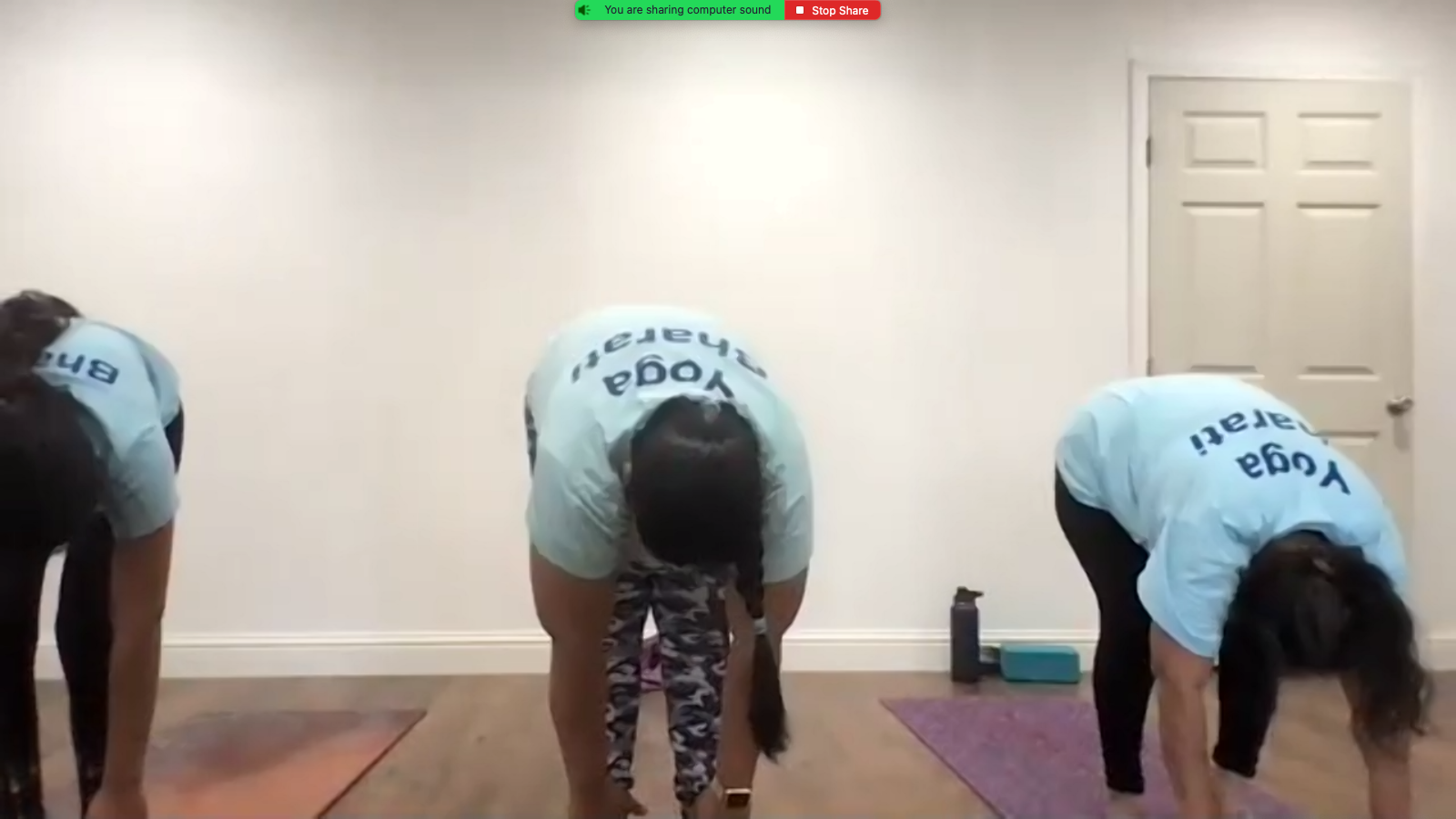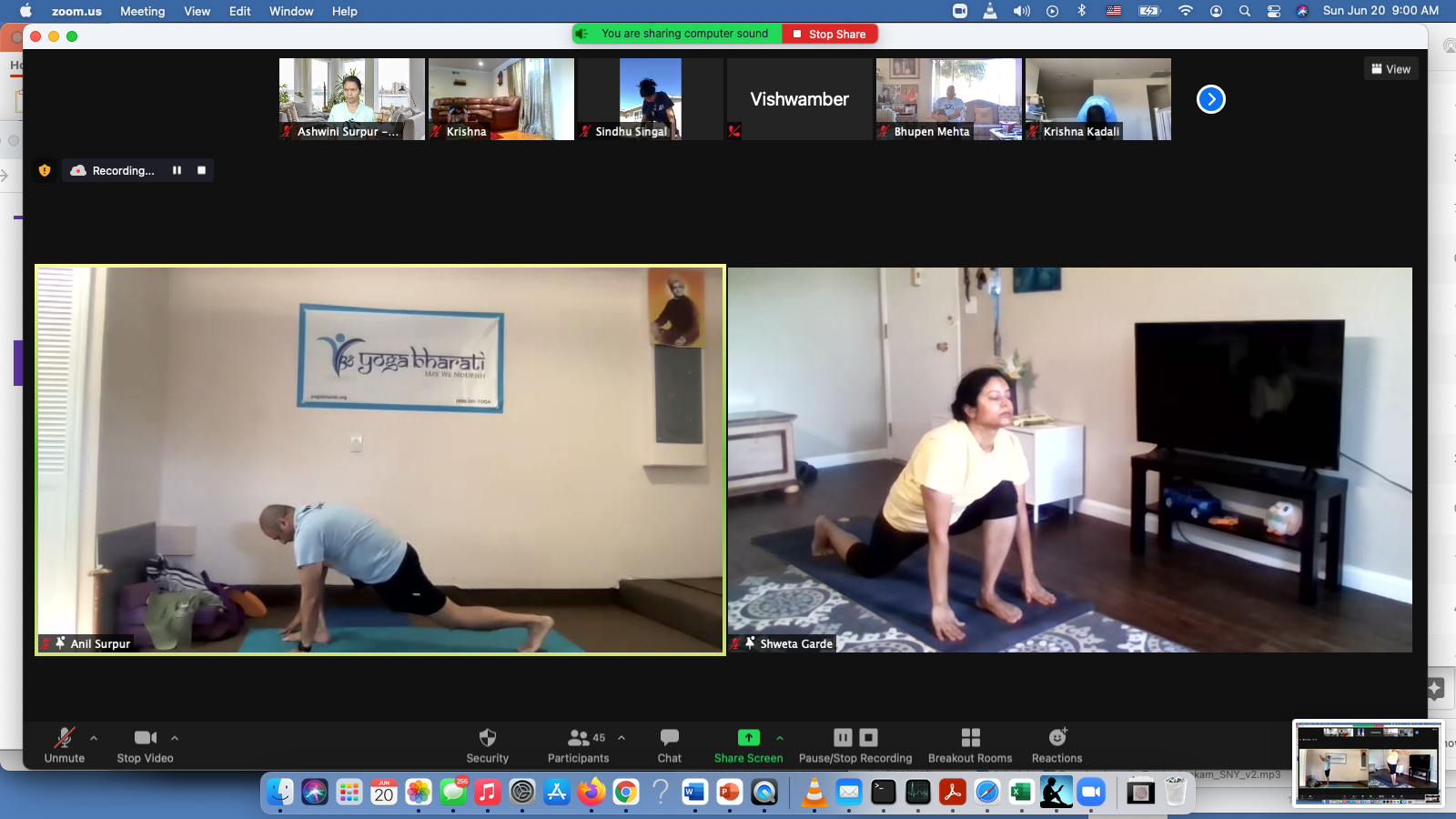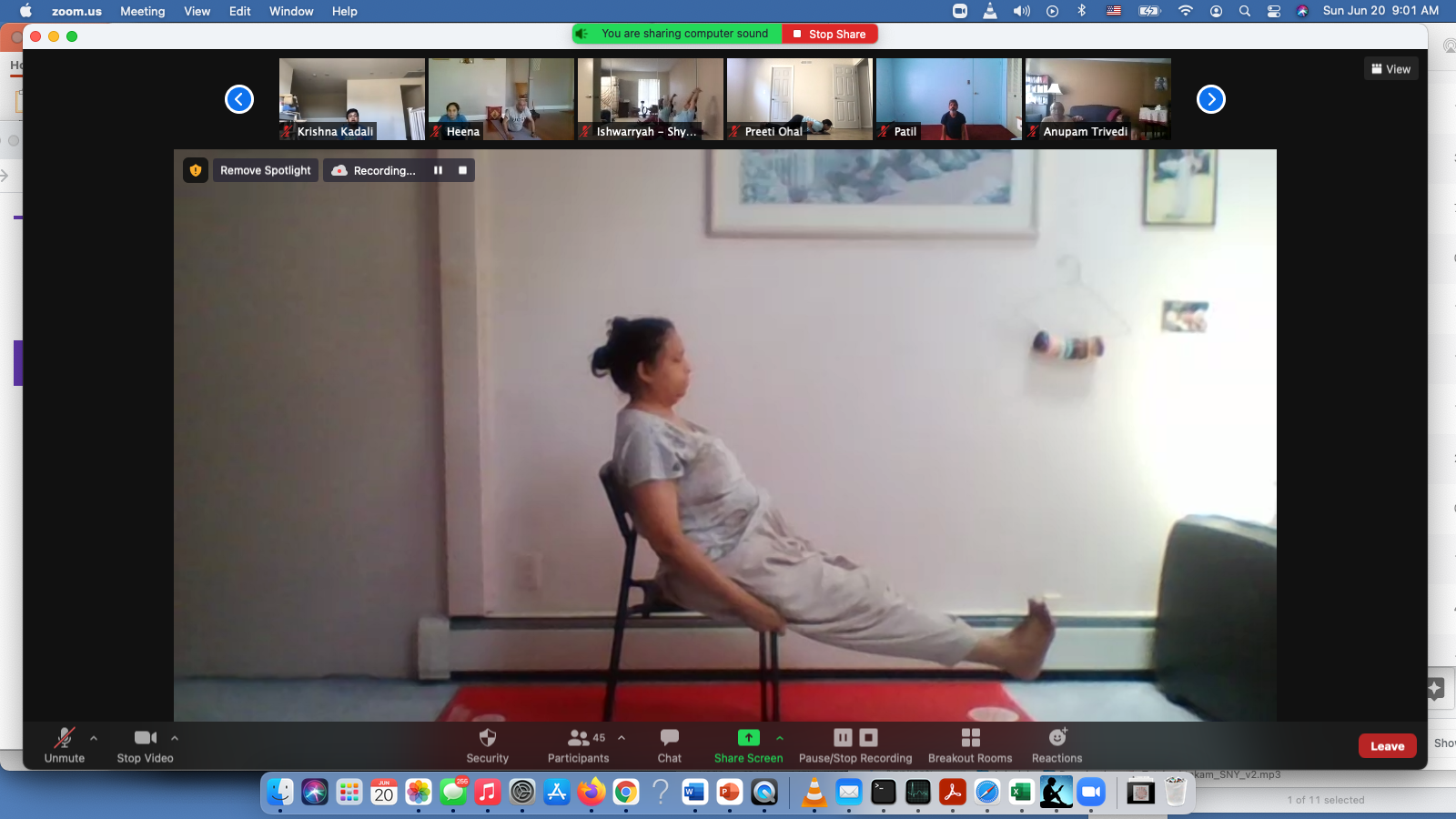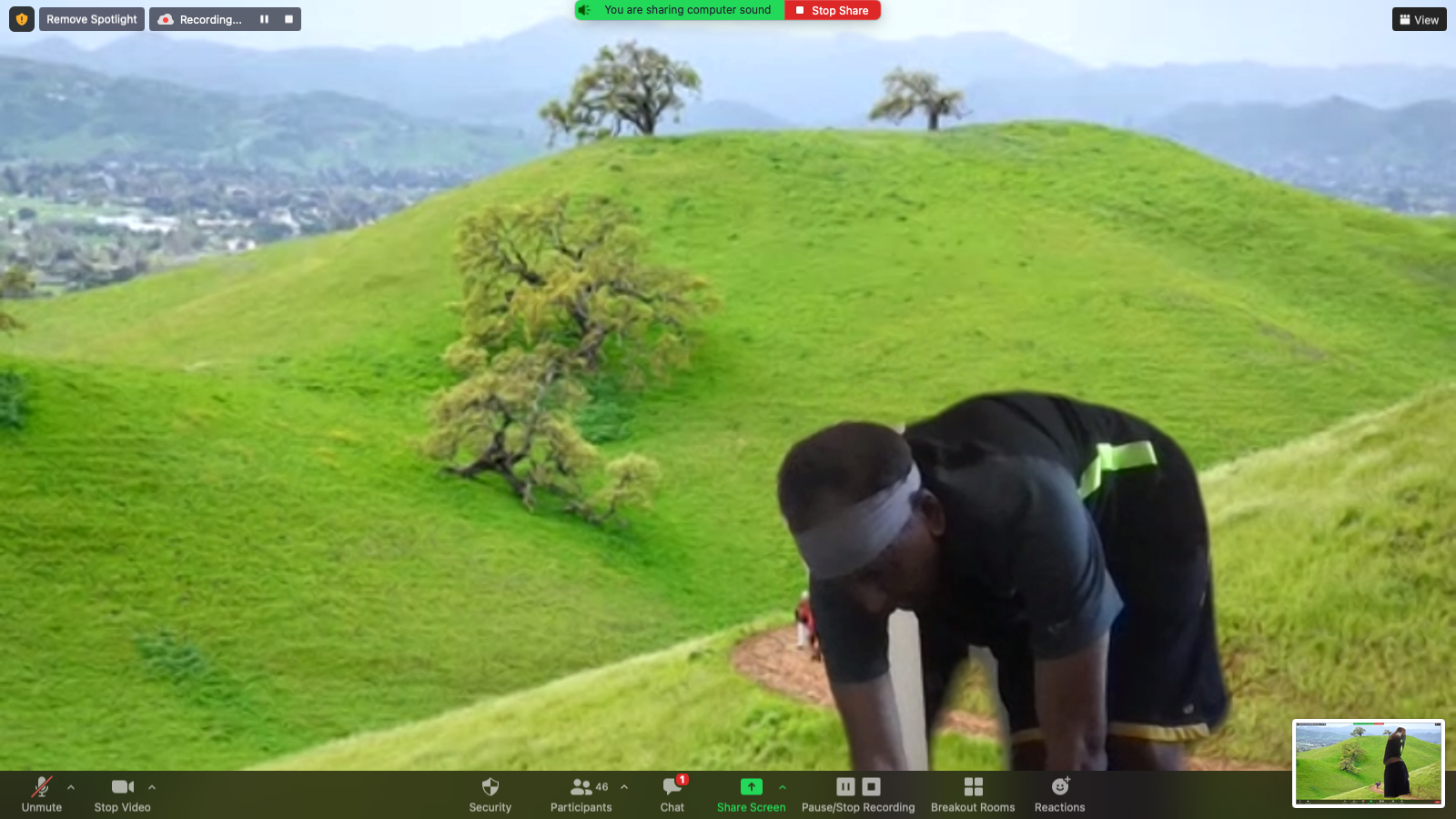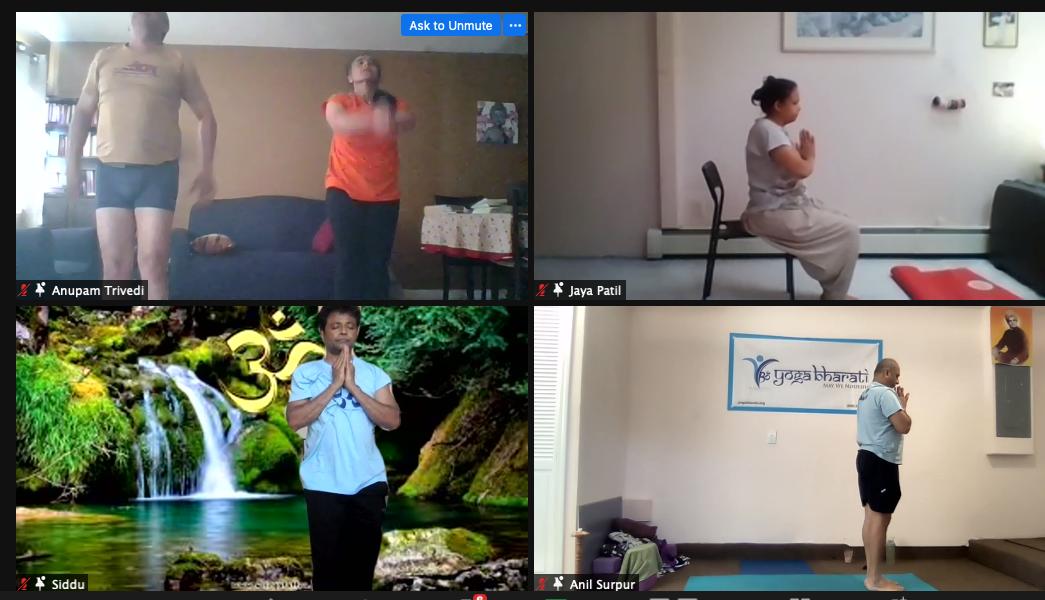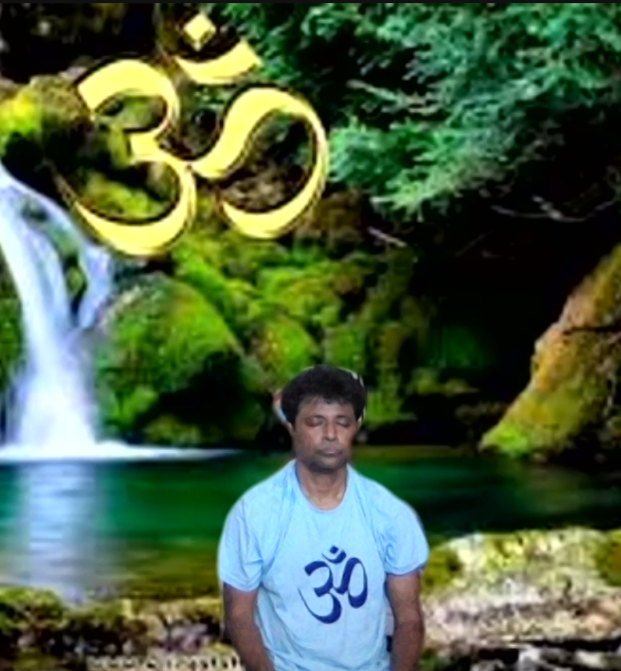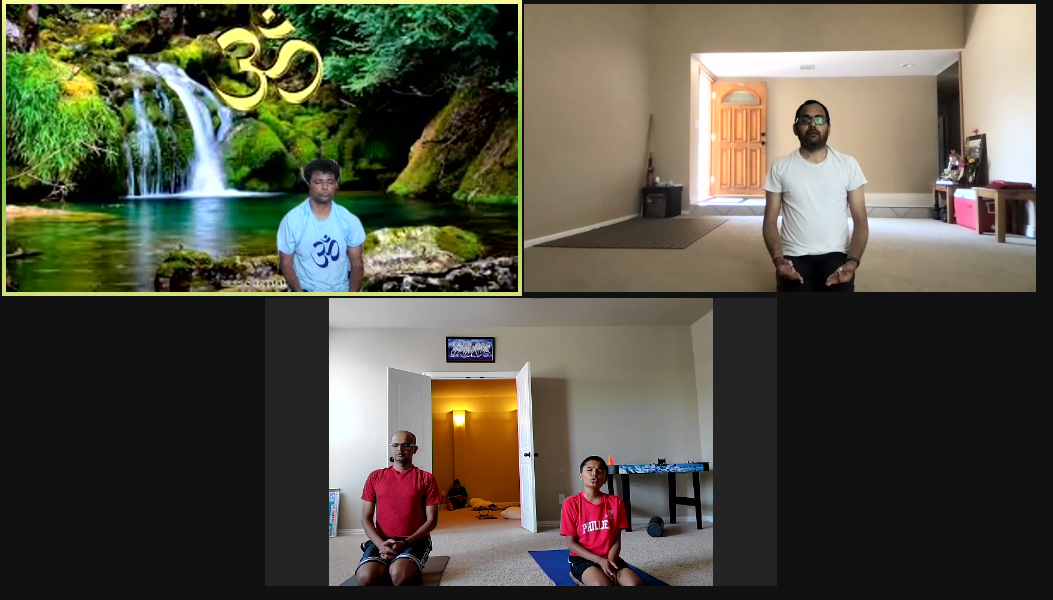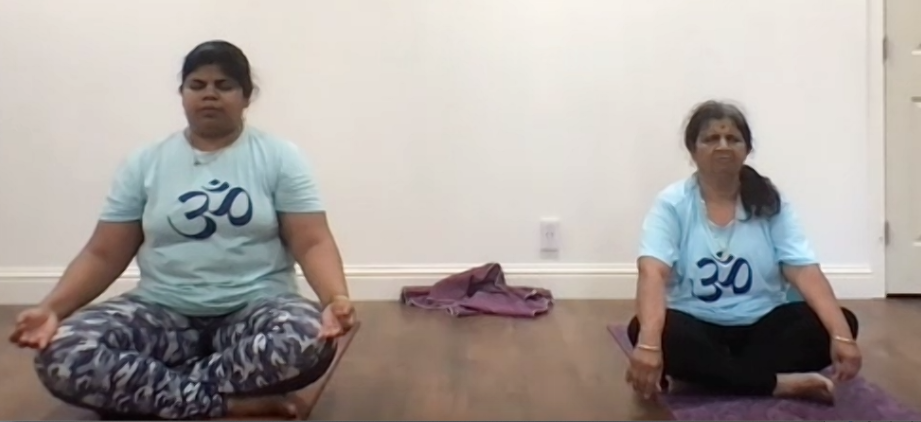Yoga for Stress Management, Insomnia and Mental Health
June 1st - 21st, 2021
Executive Summary
Abstract
This study is to observe the effects of yoga on participants participating in three different tracks namely pain management, stress disorder and metabolic disorder.
Methods
114 participants participated in the workshop. Of them 32 were men and 82 were women. There were three tracks and participants chose their own track based on their health needs.
Results
There was an overall improvement in the conditions for which the participants signed up for.
The results for the pain management show Yoga Therapy as an effective modality for treating chronic to moderate pain in the back, shoulders, neck, knees, and hip. The carefully adapted set of protocols helped in reducing pain, and also resulted in improved mobility and flexibility, bringing “functional restoration”.
The results for the metabolic disorder management showed that yoga helped in improving the flexibility of the participants, keeping them energetic throughout the day.
The results for the stress management showed that the level of stress has reduced and the way to handle the stress/response to the stress has changed with the practice of pranayama, MSRT and other practices.
Conclusion
Yoga Therapy given online, even for just 21 days, helps with improving quality of life and in addressing symptoms related to general chronic ailments. It also helps in building self awareness in the participants.
Workshop Objectives
The objective of this workshop was to widen the reach of yoga therapy to the general public and offer tools and techniques for the management of stress, pain, insomnia, mental health issues, metabolic disorders related to overweight and obesity. The goal was to observe outcomes in the participants after a sustained daily practice for 21 days. This workshop was offered as a means of spreading Yoga in a therapy application as part of our community service on the occasion of International Day of Yoga 2021. An additional goal of this workshop was to provide group therapy and empower the participants towards the recovery of their normal function and improved adaptation as well as to heal their bodies with a targeted mix of asanas, pranayama, relaxation, and meditation.
Materials and Methods
Participants
The three tracks pertaining to Stress, Pain and Weight management had a varied number of participants and differing gender distribution numbers, as shown below.
|
No. of Participants |
Gender distribution | No. of consistent Yoga attendees | No. of participants who completed post assessment | |
| Stress Mgmt |
29 |
M:8, F:21 |
12 |
6 |
| Pain Mgmt |
42 |
M:10; F:32 |
22 |
15 |
| Weight Mgmt |
43 |
M:14; F:29 |
15 |
3 |
Design
The workshop took place over a 21 day period. Prior to the workshop, participants were asked to complete a health assessment with a therapist or fill out a self assessment form. Sessions were conducted online. Each session was for a 75 minute duration. 3 sessions were conducted in the morning and 4 in the evenings.
Methods
Each track had varying methodologies employed to shape the working principle of the corresponding sessions. Although underlying conditions of participants were different, routines for relaxation and awareness etc. were used across the tracks.
| PRINCIPLES | |
| Stress Mgmt |
|
| Pain Mgmt |
|
| Weight Mgmt |
|
Additionally, each track had a focus area each week into the workshop. This enabled participants to bring their attention to specific routines, thus increasing awareness to varying aspects of themselves and the routines impact on them.
|
Salient points and Progression |
|
| Stress Mgmt |
Focus of Week 1: Stress Management techniques & Cyclic Meditation Focus of Week 2: Above techniques & Laughter Yoga Focus of Week 3: Holistic practices & Trataka |
| Pain Mgmt |
Focus of Week 1: Along with Pain management techniques, following were emphasized:
Focus of Week 2: Pain management techniques with a list of awareness points, affirmations (Sankalpas) Focus of Week 3: Yoga philosophy with an aim for notional correction and paradigm shift in thinking |
| Weight Mgmt |
Focus of Week 1: Weight management techniques with focus on Dynamic practices (cardio endurance) Focus of Week 2: Awareness of Ayurvedic lifestyle and mindful eating Focus of Week 3: Pranayama and Kriyas & Bandhas to enhance metabolic functioning |
Feedback from Participants
Stress management - Track
Participants enjoyed the MSRT. Atleast one of them gave the feedback that it was much needed after a long day of work, especially regarding the reminders about letting go.
The therapy protocol and the selected physical practices were quite easy and effective. Every practice in the set was selected for its benefit in managing stress and insomnia.
Single nostril breathing was selectively introduced for anxiety and depression, where ever present, considering other comorbidities - Left nostril breathing for anxiety and Right nostril breathing for depression
Laughter Yoga, Trataka, Cyclic Meditation, Om Meditation, MSRT and DRT were well received.
Pain management- Track
A number of participants appreciated stretching and relaxation, which are key to calming down the mind, especially in the cases of hypertension and stress. Here, MSRT is very beneficial.
Participants reported reduced pain in the knee with Wall supported veeparitakarani (legs up the wall)
Participants learnt that ”Go-slow,” is the key to help bring awareness to the mind and body.
Participants said they weren’t aware of the correct way of breathing and these sessions helped them to understand the correct way to inhale and exhale.
Weight management - Track
Surya Namaskar was well received across the participants who felt a sense of accomplishment when they were able to complete the practices as the number of cycles increased.
Participants appreciated Viparita Karani as a way of relaxation - some said it was a favorite of theirs..
Participants particularly enjoyed Laughter session
Participants reported deep relaxation in MSRT and some reported they were in a trance!
Additionally, participants reported the following parameters during the survey:
Better sleep (7 reported)
Increased flexibility and weight loss; higher energy levels (4+ reported)
Increased focus and efficiency etc (5)
Reduced stress levels and reduced doses of prescription drugs to manage stress (3)
Assessments
The Therapists have standard health assessments which included questions on the participants' ailments, lifestyles, demographics, and chronic conditions. Basic vital parameters such as height, weight, blood pressure, pulse were also compiled as part of the assessments, for all the three tracks. In applicable cases, lipid profile and glucose parameters were also collected.
Intervention - Yoga Techniques and Principles
In the stress management track, a lot of stretching, sun salutations, strengthening and inversion exercises were given to the participants. These practices were weaved along with A, U & M kara chanting to increase the inner awareness. A lot of breathing practices like alternate nostril breathing, bhramari and mediation practices like cyclic meditation, MSRT and OM meditation were incorporated in the sessions.
The pain management track focused on subtle joint loosening exercises like arms in and out breathing, neck movements, knee movements etc. Stretching exercises like cat and cow breathing, wind release movements, lumbar stretches etc. strengthening exercises like supine pelvic tilts, bridge pose, aeroplane poses etc.
In the metabolic disorder track, there was a lot of attention given to asanas which stimulated the internal organs like forward and backward bends. Agnisara kriya, a cleansing technique beneficial to improve digestion was also taught.
Data Analysis
Data was analyzed using google spreadsheet comparing pre and post data and generating simple charts. Due to the nature of the project which was an observational and subjective study, this report focuses on Therapist observation, Assessment reports and individual feedback collection based on Post- Workshop informal interviews.
Results
Participants’ experience in Yoga:
Based on the data collected from the participants after the workshop from all the three tracks;
72 % of the participants were new to yoga practice
24% of the participants have been in practice for three to six months
4% have been in practice for more than 2 years
Considering this data there is good improvement in different conditions like reduction in the stress level, improvement in the sleep quality, mitigation in the pain level etc.
Results on Quality of Life:
Regarding improvement in participant wellness factor,
44% of the participants have reported that they are feeling much better than the last evaluation
32% of the participants said that there is a slight improvement in the way they feel
24 % mentioned there is no difference
Strength and Weakness of the Study
Strengths:
Many of the participants were practicing yoga for the first time. This gave a good insight into the impact of Yoga on first time practitioners since advanced practitioners wouldn’t be able to see the benefits as distinctly as opposed to first timers.
Despite the workshops being conducted online, the impact of Yoga on the participants was noticeably evident.
Although many participants didn’t finish the study and there was no compensation model offered to encourage them, the testimonies from participants mentioned reduction in pain, increase in flexibility and enhanced awareness.
Weaknesses:
It was a short study for 21 days. We would see better results if we had 2-3 months of intervention
The study design didn’t include assessments such as conditions specific objective assessments or standardized tests, which could give better indication of their improvement .
Technological challenges were faced during all three tracks.
Conclusion
Yoga Therapy given online, even for just 21 days, helps with improving quality of life and in addressing symptoms related to general chronic ailments. It also helps in building self awareness in the participants. However, a detailed study for 2-3 months would give better results.






